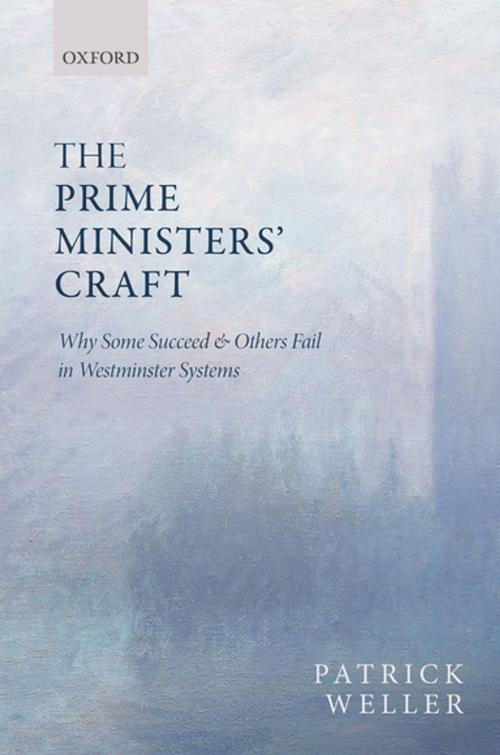The Prime Ministers' Craft
Why Some Succeed and Others Fail in Westminster Systems
Nonfiction, Social & Cultural Studies, Political Science, International, Foreign Legal Systems, Politics, History & Theory| Author: | Patrick Weller | ISBN: | 9780192540768 |
| Publisher: | OUP Oxford | Publication: | May 10, 2018 |
| Imprint: | OUP Oxford | Language: | English |
| Author: | Patrick Weller |
| ISBN: | 9780192540768 |
| Publisher: | OUP Oxford |
| Publication: | May 10, 2018 |
| Imprint: | OUP Oxford |
| Language: | English |
Prime ministers are presented as ever-more powerful figures; at the same time they seem to fail more regularly. How can the public image be so different from the apparent experience? This book seeks to answer this conundrum. It examines the myth that prime ministers are growing more powerful or that prime ministerial government has replaced cabinet government, and explores the way that prime ministers work and how they use the available levers of power to build support across the political system. Prime ministers have the potential to exercise extensive power; to do so they need to exercise the skills and opportunities available: that is, they need to develop the prime ministers' craft. Using evidence from four countries with similar Westminster systems, Australia, Britain, Canada and New Zealand, the analysis starts at the centre by examining how prime ministers reach office and how they understand their new job — those who win elections see it differently from those who replace leaders from the same party. The book then analyses the support prime ministers have from their Prime Ministers Offices and the Cabinet Offices, exploring their relations with ministers and the way they run and use their cabinet, and explains how governments work and why prime ministers are so central to their success. The book then explores their role as public figures selling the government to the parliament and the electorate and to the international community beyond. The Prime Ministers' Craft concludes by assessing how success can be judged and identifies how the different institutional arrangements have an impact on the way prime ministers work and the degree to which they are accountable.
Prime ministers are presented as ever-more powerful figures; at the same time they seem to fail more regularly. How can the public image be so different from the apparent experience? This book seeks to answer this conundrum. It examines the myth that prime ministers are growing more powerful or that prime ministerial government has replaced cabinet government, and explores the way that prime ministers work and how they use the available levers of power to build support across the political system. Prime ministers have the potential to exercise extensive power; to do so they need to exercise the skills and opportunities available: that is, they need to develop the prime ministers' craft. Using evidence from four countries with similar Westminster systems, Australia, Britain, Canada and New Zealand, the analysis starts at the centre by examining how prime ministers reach office and how they understand their new job — those who win elections see it differently from those who replace leaders from the same party. The book then analyses the support prime ministers have from their Prime Ministers Offices and the Cabinet Offices, exploring their relations with ministers and the way they run and use their cabinet, and explains how governments work and why prime ministers are so central to their success. The book then explores their role as public figures selling the government to the parliament and the electorate and to the international community beyond. The Prime Ministers' Craft concludes by assessing how success can be judged and identifies how the different institutional arrangements have an impact on the way prime ministers work and the degree to which they are accountable.















